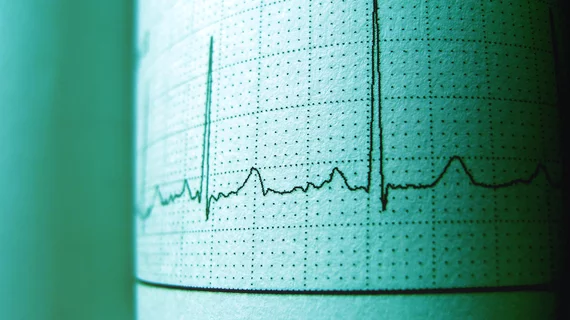AI model uses ECG data to identify new cases of AFib
Using artificial intelligence (AI) to screen patients for atrial fibrillation (AFib) can detect new cases that may have otherwise been missed, according to new research published in The Lancet.[1] The study’s authors hope their work can make a significant impact by preventing life-threatening strokes.
“Traditional screening programs select patients based on age (65 or older) or the presence of conditions such as high blood pressure,” senior author Xiaoxi Yao, PhD, a health outcomes research with Mayo Clinic in Rochester, Minnesota, said in a prepared statement. “These approaches make sense because advanced age is one of the most important risk factors for AFib. However, it is not feasible to repeatedly conduct intensive heart monitoring in more than 50 million older adults across the country.”
Yao et al. aimed to see if AI could provide clinicians with another screening option for identifying AFib patients. The group turned to an algorithm previously developed by Mayo Clinic specialists to evaluate electrocardiograms (ECGs) for signs of previously unknown AFib, comparing 1,003 patients screened with AI to another 1,003 patients who received usual care.
Overall, the researchers found, AI-guided screening was linked to more detected cases of AFib among both high- and low-risk patients.
“The study shows that an AI algorithm can select a subgroup of older adults who might benefit more from intensive monitoring,” Yao said.
Lead author Peter Noseworthy, MD, a cardiac electrophysiologist with Mayo Clinic, added that these findings could prove to be “particularly valuable” in “resource-constrained environments” where undetected AFib is an especially big issue.
“More work is needed to overcome barriers to implementation, and further studies must evaluate targeted screening strategies in these environments,” he said.
Noseworthy also emphasized that preventing strokes remains the team’s top priority.
“Now that we have demonstrated that AI-driven AFib screening is possible, we will also need to show that patients with screen-detected AFib benefit from treatment to prevent stroke," Noseworthy said. “Our ultimate goal is to prevent strokes. I believe the current study has brought us one step closer.”

